The Roberto Reis BRASA Book Award recognizes the two best books in Brazilian Studies published in English that contribute significantly to promoting an understanding of Brazil. The award honors Roberto Reis, one of the founders of BRASA, who was committed to developing Brazilian Studies in the United States.
BRASA will award four prizes– two for first monographs, two for senior authors. The books must have been published between January 2024 and December 2025.
The author or publisher of the book must submit a cover sheet by e-mail to the BRASA Secretariat at brasa@brasaweb.org, and submit a printed copy of the cover sheet and a copy of the book to either first book or senior scholar committee members indicated on the cover sheet.
For a book to be considered for the award, its author must be a member of BRASA and up-to-date in dues. The committees will only consider single-authored monographs, not edited volumes or collected essays.
The submission deadline will be December 15, 2025. (Note: Books published in December 2025 may be submitted by December 31, 2025.) The Secretariat will send a letter to the winners and announce the winners through the BRASA website and digest. Announcement of the winners will also be made at the next BRASA XVIII International Conference.
Requests to submit PDFs, instead of printed books, will be considered on a case-by-case basis based on the cost of the book, place of publication, and shipping logistics. Please send all requests to brasa@brasaweb.org.
2024 Roberto Reis Book Award Winners
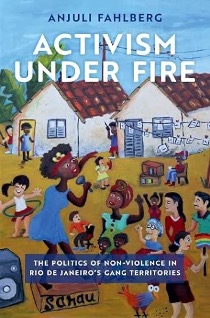
Activism Under Fire: The Politics of Non-Violence in Rio de Janeiro’s Gang Territories. Oxford University Press, 2023.
Activism Under Fire is a theoretically-rich ethnography of non-violent activism in a tragically violent space. Fahlberg demonstrates how non-violent collective action relates to gang-police violence in Rio’s Cidade de Deus in surprising and co-constitutive ways. Emerging from a sustained dialogue with community activists, the book remains in conversation with its participants—including complex co-theorizations—from its alluring introduction to its thoughtful appendix. Each chapter draws on co-crafted participatory action dialogues to offer not only nuanced theoretical interventions useful for a wide range of interdisciplinary intellectual audiences, but more crucially, models for cultivating and mobilizing complex local knowledges and social movements. This book will serve as a vital reference for ethical, reciprocal, and theoretically engaged community-based ethnography and social justice scholarship.
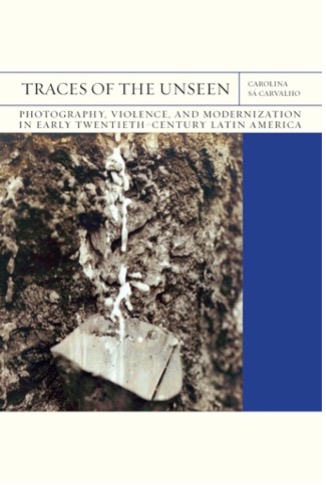
Traces of the Unseen: Photography, Violence, and Modernization in Early Twentieth-Century Latin America. Northwestern University Press, 2023.
Traces of the Unseen analyses photographic images and gazes to unravel the interactions of modernization, environmental degradation, and institutionalized violence across Brazilian hinterlands—from Canudos to Amazonia and beyond. This rich and original treatment moves between a variety of inventive primary sources to demonstrate the many roles of photographs and photography in the march of capitalist modernization that swept through Latin America in the early-twentieth century. The work deftly balances interdisciplinary theoretical engagements with accessible historical narratives to demonstrate how nations, economies, and technologies developed together and through interrelation. This book reminds us how literary and media studies, and indeed the broader humanities, have much to contribute to the most challenging political-environmental issues and debates of the twenty-first century.
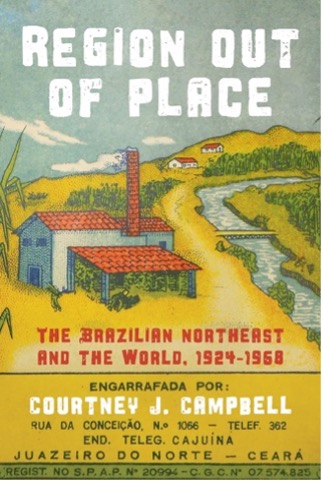
Region out of Place: The Brazilian Northeast and the World, 1924-1968. University of Pittsburgh Press, 2022.
Courtney J. Campbell’s Region out of Place is a brilliant, meticulously researched, and paradigm-shifting study of the Brazilian Northeast. Skillfully weaving together an impressive range of sources from the early twentieth century up to the present, Campbell succeeds in developing fresh and exciting new perspectives on what is arguably Brazil’s most exhaustively studied region by placing it within the larger international context. Nimbly moving between diverse topics such as cordel literature, World Cup soccer, beauty pageants, and banditry narratives, among others, Campbell examines how generations of regionalists have sought creative dialogues with the world beyond Brazil’s borders. In so doing, her masterpiece of a book offers readers fascinating and groundbreaking insights into Northeastern culture and identity formation over the last one hundred years.
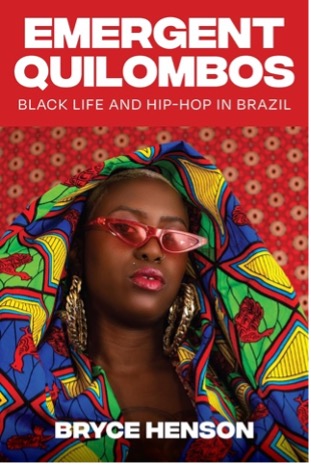
Emergent Quilombos: Black Life and Hip-Hop in Brazil. University of Texas Press, 2024.
This exciting ethnography frames Bahian hip-hop movements as Emergent Quilombos, connecting a community of young artists and their vibrant cultural and social collectives with centuries of Black resistance in Brazil. With vivid prose and rich theoretical engagement, this book narrates how Bahian youth have mobilized hip-hop to create and sustain spaces of cultural and physical refuge that foment creativity and care. In these powerful spaces we find adaptable forms of resistance to the coloniality of oppression, ruptures within dominant forms of modernity, and quilombos both material and philosophical where new social forms and relations are developed and rehearsed. The book’s complex and innovative theorizations of race, gender, and class—their nuances, intersections, and functions—provide a persuasive and novel framework for understanding and analyzing social difference and interaction in Brazil and beyond.
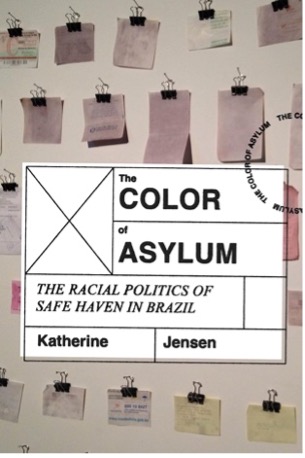
The Color of Asylum: The Racial Politics of Safe Haven in Brazil. University of Chicago Press, 2023.
TKatherine Jensen’s The Color of Asylum is an exceptionally captivating and timely exploration of the complexities of asylum-seeking in Brazil. Skillfully combining ethnography with a wealth of legal and archival materials, Jensen demonstrates how anti-Black racism and the social construction of whiteness profoundly shape the experiences of refugees arriving from other lands. Training her lens on the contrasting experiences of two understudied groups– Syrian and Congolese refugees– she exposes the paradoxes of Brazil’s ostensibly open asylum policy, which in reality reinforces entrenched racial logic and produces new forms of differential inclusion. Taking readers deep into the asylum bureaucracy and the machinery of the racial state, Jensen’s beautifully written study represents a major and much needed contribution to scholarship on both race and immigration in Brazil.
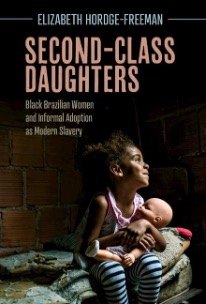
Elizabeth Hordge-Freeman. Second-Class Daughters: Black Brazilian Women and Informal Adoption as Modern Slavery. Cambridge University Press, 2022.
Second-Class Daughters is visionary, ground-breaking, and simply a triumph. The book treats the common (if little-studied) phenomenon of filhas de criação, exposing the ways in which this informal, semi-secret system of adoptions intersects with contemporary slavery and human trafficking. With astonishing depth and care—based on years of interviews with thirteen survivors—Hordge-Freeman tells, first and foremost, the utterly heartbreaking stories of children (mostly nonwhite, female children) taken from their birth families in an ersatz “escape hatch” to safety and prosperity. Beyond these incredible, rich, and wrenching narratives, Hordge-Freeman demonstrates not only that this type of so-called adoption entails structural child abuse and exploitation, but that it is a prism for understanding much wider inequalities and violence in Brazil. Filhas de criação, Hordge-Freeman shows, remain second-class, in ways that reflect the patriarchal, capitalist white supremacy that casually separates humans into appallingly disparate social, economic, and racial categories.
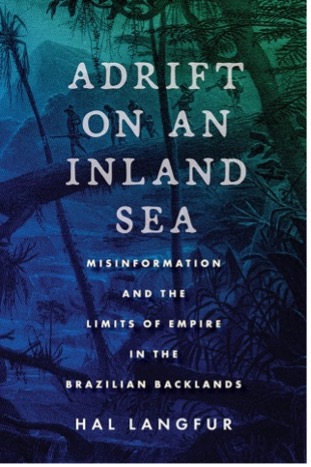
Adrift on an Inland Sea: Misinformation and the Limits of the Empire in the Brazilian Backlands is a ground-breaking study that reframes the debates about the conditions of knowledge and the reach of imperial power in the sertões, or backlands, of Brazil in the eighteenth century. In this inspiring book, Hal Langfur brings to the fore a multitude of voices, including those of Portuguese colonial administrators and, most importantly, the voices of local populations whose presence in the archives is so easily overlooked. From these multiple angles, Adrift on an Inland Sea underscores the relentless efforts by the Portuguese crown to ascertain political, economic, and military dominance in the backlands in face of often unsurmountable challenges posed by competing goals from other actors. This book offers a profoundly illuminating and innovative contribution to the field of colonial history.
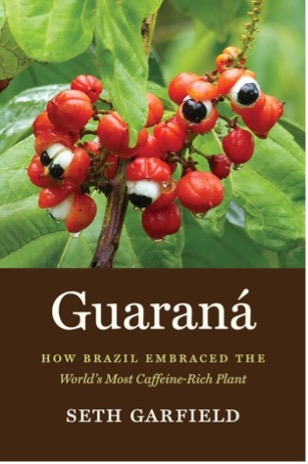
Guaraná: How Brazil Embraced the World’s Most Caffeine-Rich Plant. University of North Carolina Press, 2022.
Guaraná: How Brazil Embraced the World’s Most Caffeine-Rich Plant offers a bold, meticulously researched, and beautifully written account of of the cultural, economic, and environmental significance of guaraná fruit. By tracing guaraná’s history from its mythical presence among Native Amazonians to its current industrial prominence as a “soft drug” with nationalist undertones, Seth Garfield brings together a wide array of periods, sources, fields, and debates, around a tropical commodity that encapsulates the history of Brazil across centuries from the colonial period to the present. In exploring guaraná’s presence in popular culture, scientific research, and its economic potential, Garfield sheds light onto this plant’s surprisingly understudied history to make the case for a renewed thematic and methodological approach to Brazilian history. This is a captivating and compelling contribution to multiple fields of study

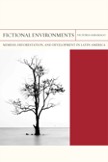
Fictional Environments: Mimesis, Deforestation, and Development in Latin America. Northwestern University Press, 2020.
Fictional Environments skillfully underscores literature’s grounding in and value for society via a meticulous and insightful examination of how fictional works intervene in Latin American environments via imaginative practices and knowledge creation. Using a complex theoretical scaffolding, Saramago’s book brilliantly shows the importance of literature in generating conversations about threats to various environments in Brazil and, more broadly, the Americas, and how literary texts can inspire conservation efforts. Fictional Environments is one of those exceptional texts that change the way one thinks about literature, the interface between the literary work and society, and the role that literary scholarship can play in thinking about and interacting with the world around us. Every chapter of Fictional Environments sheds new light on literary works that have enjoyed an extensive critical fortune. Each of the book’s chapters inspires the reader to reexamine canonical texts and explore other critical avenues to these readings. Fictional Environments will undoubtedly become a must-read reference for scholars dealing with Latin American environmental humanities and those studying Latin American literature more generally.

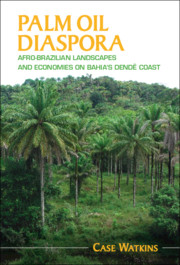
Palm Oil Diaspora: Afro-Brazilian Landscapes and Economies on Bahia’s Dendê Coast. Cambridge University Press, 2021.
Palm Oil Diaspora is relevant, analytically rigorous and grounded in real peoples’ experiences, representing the best of interdisciplinarity and Brazilian studies. Watkins uses a methodologically innovative combination of archival records, geospatial mapping, and ethnography to masterfully narrate the entanglements of geography, history, and social environments among Afro Brazilians. His superb history and ethnography of this potent icon of the Afro Brazilian diaspora is a perceptive analysis of the complexities underlying the relationship between black communities, environments, and power. In particular, Palm Oil Diasporas is an indispensable history for anyone interested in the movement of plants peoples and African knowledge systems in the Americas. This book is likely to stand the test of time.

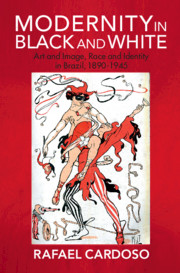
Modernity in Black and White: Art and Image, Race and Identity in Brazil, 1890-1945. Cambridge University Press, 2021.
In this groundbreaking text, Cardoso provides an account of modern art and modernism in Brazil. Departing from previous studies, mostly restricted to the elite arenas of literature, fine art and architecture, the book situates cultural debates within the wider currents of Brazilian life. From the rise of the first favelas, in the 1890s and 1900s, to the creation of samba and modern carnival, over the 1910s and 1920s, and tracking the expansion of mass media and graphic design, into the 1930s and 1940s, Cardoso deftly foregrounds aspects of urban popular culture that have been systematically overlooked. Against this backdrop, Cardoso provides a compelling re-reading of Antropofagia and other modernist currents, locating them within a broader field of cultural modernization. In sum, combining extensive research with close readings of a range of visual cultural production, the volume brings to light a rich archive of art and images in a compellingly written text, accessible across disciplines.

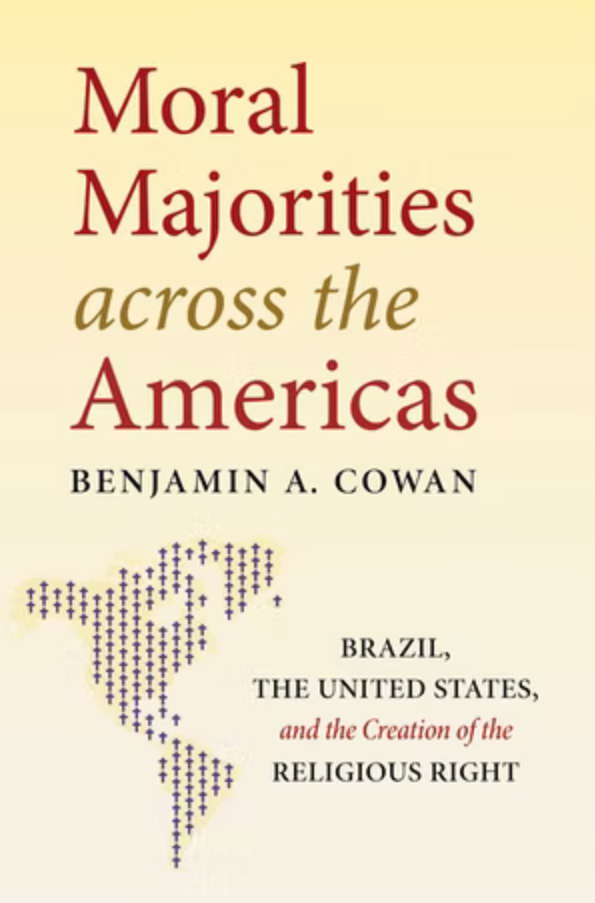
Moral Majorities Across the Americas: Brazil, the United States, and the Creation of the Religious Right. University of North Carolina Press, 2021.
In this meticulously researched book, Cowan chronicles the advent of a hemispheric religious movement in both Brazil and the United States. These two countries, Cowan astutely argues, played host to the principal activists and institutions who collaboratively fashioned the ascendant religious conservatism of the late twentieth century. In his text, Cowan not only unearths fascinating historical connections between Brazilian and U.S. religious conservatives but also proves just how essential Brazilian thinkers, activists, and institutions were to engendering right-wing political power in the Americas. The book shows that both Protestant and Catholic religious warriors began to dialogue in the 1930s around a passionate aversion to mainstream ecumenicalism and moderate political ideas. Brazilian intellectuals, politicians, religious leaders, and captains of industry worked with partners at home and in the United States to build a united right. Their transnational, transdenominational platform fostered a sense of common cause and allowed them to develop a series of strategies that pushed once marginal ideas to the center of public discourse, reshaped religious demographics, and effected a rightward shift in politics across two continents. Moral Majorities Across the Americas significantly informs and transforms our understanding of Brazil’s political history.

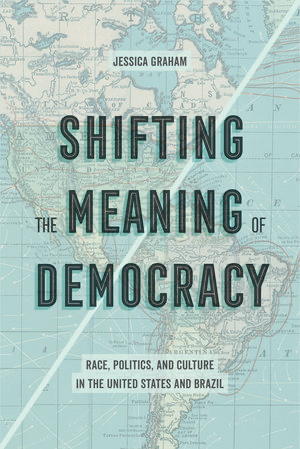
Shifting the Meaning of Democracy: Race, Politics, and Culture in the United States and Brazil. Oakland, California, University of California Press, 2019.
Shifting the Meaning of Democracy is a historiographical study based on a careful search of archives and a vast domain of intellectual production over the studied period. The author faces one of the most certain premises of comparative studies on Brazil and the United States: its opposition in racial terms. It is a work with many contributions. It brings an essential reflection of a relevant historical period (1930-1945) on the theme of democracy in both countries, innovates about the importance of the relationship between race and politics in the analyzed period. The book covers a series of important historical facts in both countries, identifying not only alliances but common strategies about racial issues bringing new lights on our understanding about race, nation and democracy in both nations.

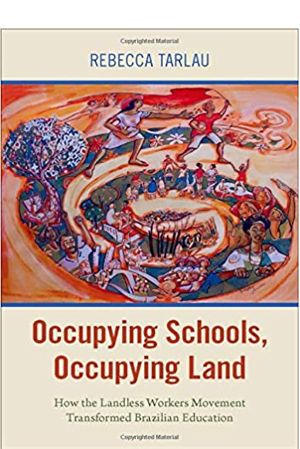
Occupying Schools, Occupying Land: How the Landless Workers Movement Transformed Brazilian Education. New York, Oxford University Press, 2019.
In Occupying Schools, Occupying Land, Rebecca Tarlau offers a history and a political ethnography of the educational initiatives of the Landless Workers Movement (MST) from the 1980’s to 2013. She argues that the MST’s educational initiatives have been combining contentious political actions with the strategic occupation of state institutions in order to pursue its goals of social transformation. In other words, she shows that MST’s educational struggles and achievements suggest that “social movements can increase their internal capacity by strategically engaging institutions.” The book is based on a truly impressive research effort, which included twenty months of immersion in the daily activities of the movement’s educational collectives, more than two hundred in-depth interviews with activists and state actors, and hundreds of other primary and secondary sources including correspondences, government laws and decrees, textbooks, newspaper articles, conference programs, flyers, and an array of other sources..

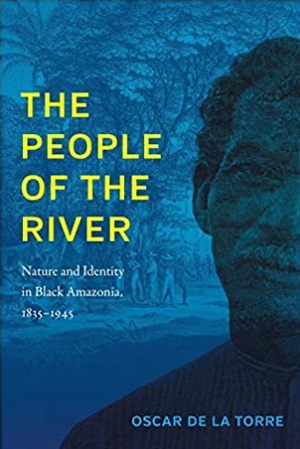
The People of the River: Nature and Identity in Black Amazonia, 1835-1945. Chapel Hill: The University of North Carolina Press, 2018.
Tianna Paschel’s book, Becoming Black Political Subjects, offers a ground-breaking analysis that demystifies the layered factors that catalyzed the development of ethno-racial legislation in Brazil and Colombia. Most distinctively, Paschel relies on a sophisticated conceptual frame and a multi-leveled approach that draws on ethnographic research and archival data to both center the agency of black activists and highlight how the alignment of diverse political fields (global and local) were critical factors in the emergence of black political subjectivity. Paschel’s book represents a rigorous model of comparative race analysis with clear significance for Brazil and beyond.

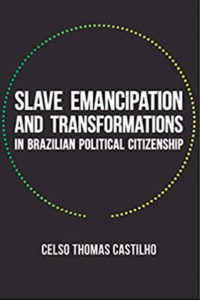
Slave Emancipation and Transformations in Brazilian Political Citizenship. Pittsburgh: University of Pittsburgh Press, 2016.
Many scholars have written about the abolition of slavery in Brazil, but much of the literature on slave emancipation has focused on who, why, and when. In this excellent and innovative study of the abolitionist movement in Pernambuco, Celso Castilho takes the discussion in an important new direction, focusing on the way the mobilization to end human enslavement in Brazil stretched the boundaries of the public sphere and animated new debates about citizenship and national belonging. These debates, in turn, impacted the course of the emancipation process, but also prompted elites clinging to their slave-based power to respond in ways that delayed abolition and dismissed the political claims of women, the poor, and people of color, enslaved and free. This book is both a crucial contribution to the historiography of slave emancipation in Brazil and a critical source for understanding the limited definitions of freedom and citizenship that shaped the post-emancipation order.

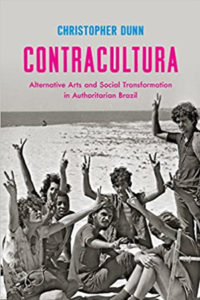
Contracultura: Alternative Arts and Social Transformation in Authoritarian Brazil. Chapel Hill, North Carolina: University of North Carolina Press, 2016. Christopher Dunn’s Contracultura: Alternative Arts and Social Transformation in Authoritarian Brazil provides a heretofore unprecedented exploration of the Brazilian countercultural movement from its inception in the late 1960s through the late 1970s. With particular attention to class, gender, race, sexuality, and their intersections, Dunn offers sharp analyses and rich descriptions of the varied ways that artists, intellectuals, and youth disrupted the visions of not only authoritarian military leaders but also leftist establishments. With careful attention to the incomplete and ephemeral sensibilities of musicians, writers, dancers, and others, Dunn reveals the more consequential impact of the countercultural turn of the 1970s on everyday Brazilian cultural production and civil society.

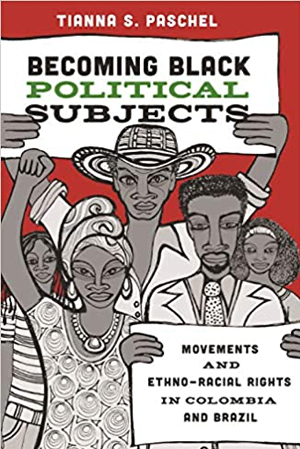
Becoming Black Political Subjects: Movements and Ethno-Racial Rights in Colombia and Brazil. Princeton, NJ: Princeton University Press, 2017.
Tianna Paschel’s book, Becoming Black Political Subjects, offers a ground-breaking analysis that demystifies the layered factors that catalyzed the development of ethno-racial legislation in Brazil and Colombia. Most distinctively, Paschel relies on a sophisticated conceptual frame and a multi-leveled approach that draws on ethnographic research and archival data to both center the agency of black activists and highlight how the alignment of diverse political fields (global and local) were critical factors in the emergence of black political subjectivity. Paschel’s book represents a rigorous model of comparative race analysis with clear significance for Brazil and beyond.

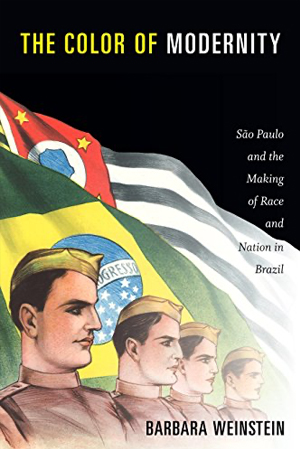
The Color of Modernity: São Paulo and the Making of Race and Nation in Brazil. Durham: Duke University Press, 2015.
This scintillating book traces the history of the idea that São Paulo constituted a singularly modern, economically dynamic, and predominantly white region that embodied Brazil at its best. Through extraordinarily fine-grained research into key episodes in twentieth-century paulista history, Weinstein shows how paulistas deployed this image at different times to uphold the state’s preeminent position in the nation, often at the expense of other regions. One of the book’s powerful insights is to conceive of nation and region, as well as whiteness and racial democracy, not as opposites or antagonists but as imperfectly complementary constructs. In so doing, Weinstein breaks new ground in explaining the reproduction and persistence of racial and socioeconomic inequalities—and their spatial dimensions—in a “racially democratic” Brazil over the long twentieth century. This is a book that will shape the scholarship on race, region, nation, and inequality in Latin America and beyond for decades to come.

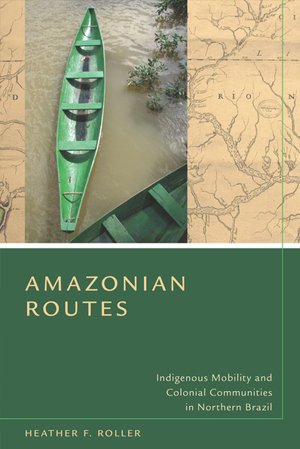
Amazonian Routes: Indigenous Mobility and Colonial Communities in Northern Brazil. Stanford: Stanford University Press, 2014.
This is a game-changing book. Beautifully written, marvelously understated, Heather Roller’s book offers a persuasive new interpretation of the interactions between the Portuguese empire and the indigenous populations of the Amazon in the late colonial era. Breaking with longstanding conventional views of native Amazonians fleeing imperial power ever deeper into the forest, Heather Roller makes the compelling argument, based on heretofore untapped sources, that the native peoples of the Amazon used the imperial state almost as much as the imperial state used them. Roller’s book forces us to rethink much of what we thought we knew about state-indigenous relations, not only in Brazil, but in much of Latin America and the world – – and not only then, but today as well. A tour de force of scholarship and the historical imagination.

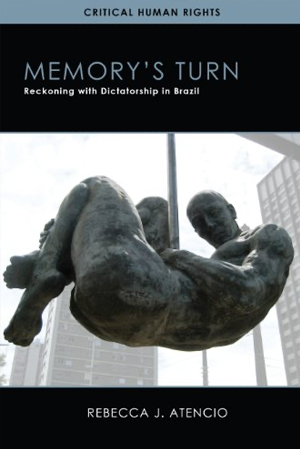
Memory’s Turn: Reckoning with Dictatorship in Brazil. Madison: University of Wisconsin Press, 2014.
With Memory’s Turn, Rebecca Atencio makes a timely and incisive intervention in ongoing debates surrounding the culture and politics of transitional justice in Brazil. After decades of “institutionalized forgetting” that effectively closed the books on the crimes of the military dictatorship, the Brazilian government established a National Truth Commission in 2011 to investigate human rights abuses perpetrated by agents of the regime. Atencio’s study shows how cultural products, including novels, testimonies, films, and television dramas, have impacted Brazil’s “turn to memory.” She offers an elegant and transferable theoretical model for understanding the relationship between “cycles of cultural memory” and institutional mechanisms designed to address past crimes and injustices.